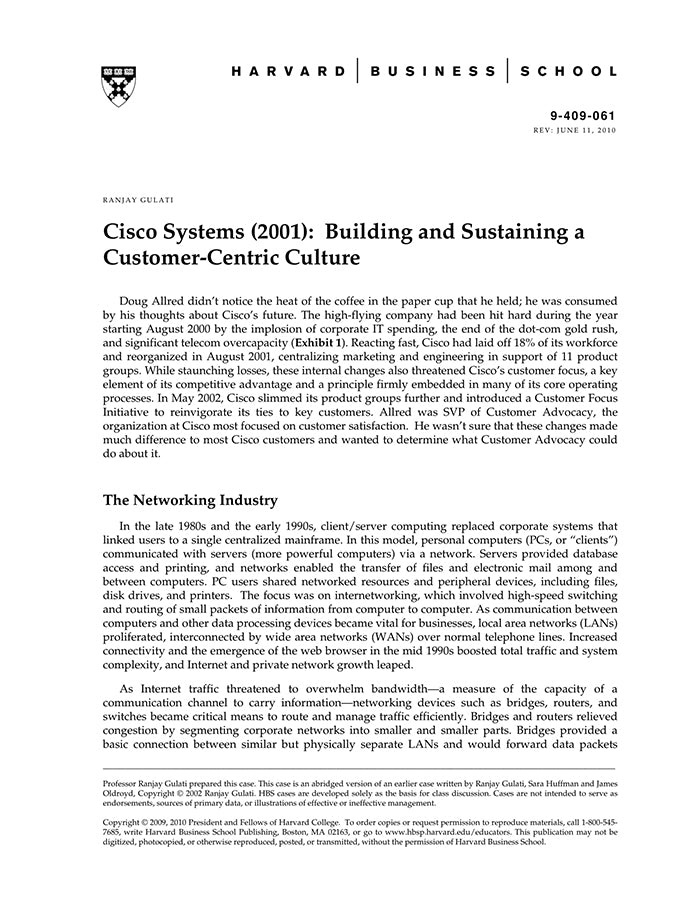Cisco Systems (2001): Building and Sustaining a Customer-Centric Culture
受取状況を読み込めませんでした
Customer centricity has been an important part of the culture at Cisco Systems since its inception. While part of this is attributable to values put in place by the founders and retained by subsequent management, it is also closely interwoven with its organizational architecture that reaffirmed those values. Until 2001, Cisco had a decentralized organizational structure with three business units organized around each of its three main customer types: Service Provider, Enterprise, and Commercial. Each unit developed and marketed a complete product line for its specific customer group further reaffirming its belief in the centrality of distinct customers. A number of other systems, structures, and behavioral mechanisms reaffirmed the importance of customer centricity. The 2001 market downturn, however, brought new challenges as Cisco was forced to lay off 18% of its workforce and reexamine its organizational structure that was costly due to duplication of activities across each of the three customer-facing business units. Ultimately, Cisco Systems decided to transform the company from a decentralized to centralized organization. While recognizing that a centralized, functional structure was necessary to avoid product and resource redundancies, it also threatened Cisco's customer-centricity in that the centralization of R & D and marketing made them more distant from Cisco's customers. To overcome the perceived misalignment between its structure and culture, Cisco introduced a number of initiatives like the Customer Focus Initiative (CFI) to ensure that while the structure was turning away from customer centricity, the beliefs and actions of its employees maintained that focus. In doing so, management accepted the likely misalignment between its structure and culture and sought ways to compensate for this perceived gap.
【書誌情報】
ページ数:21ページ
サイズ:A4
商品番号:HBSP-409061
発行日:2009/1/6
登録日:2012/2/23


